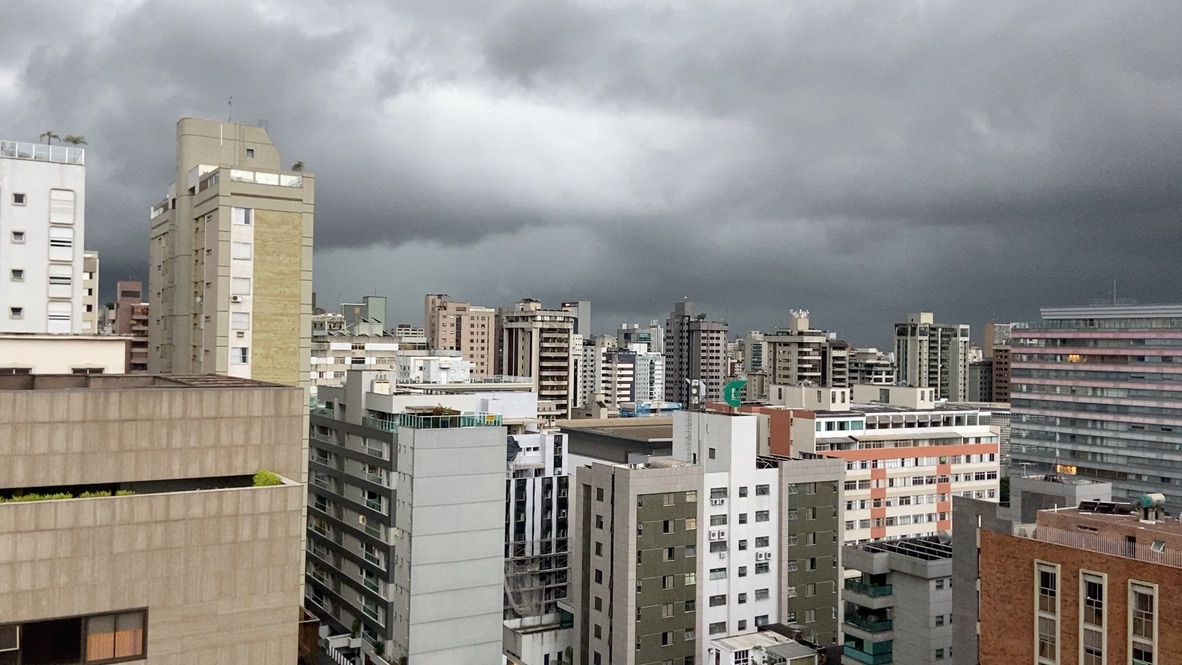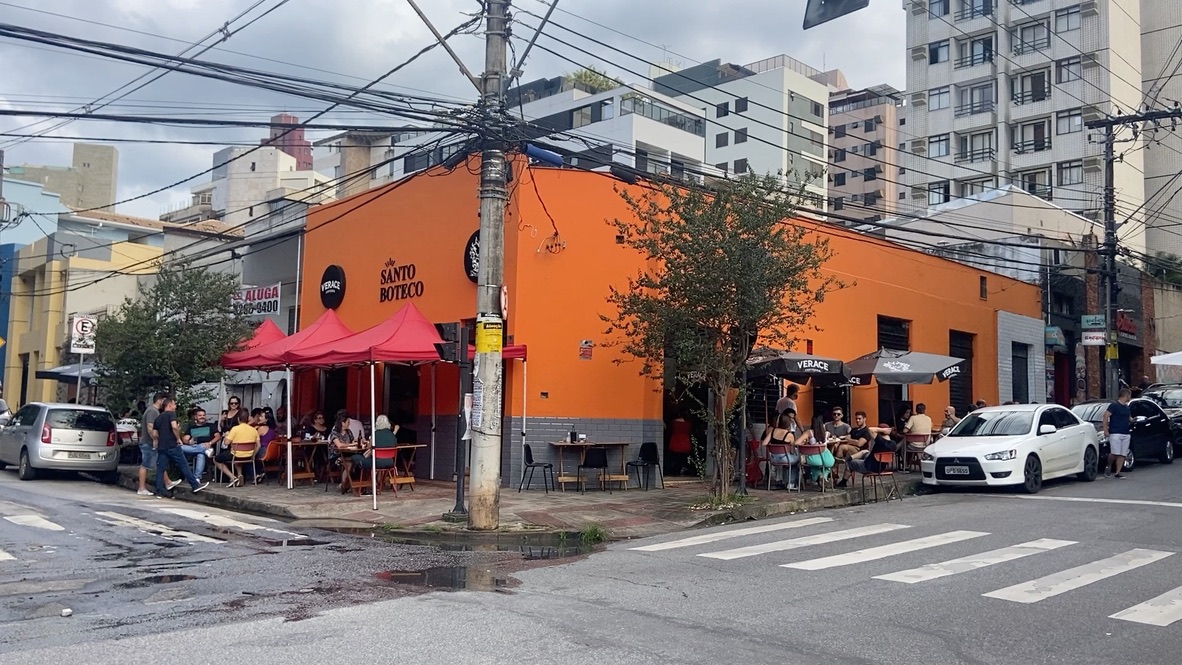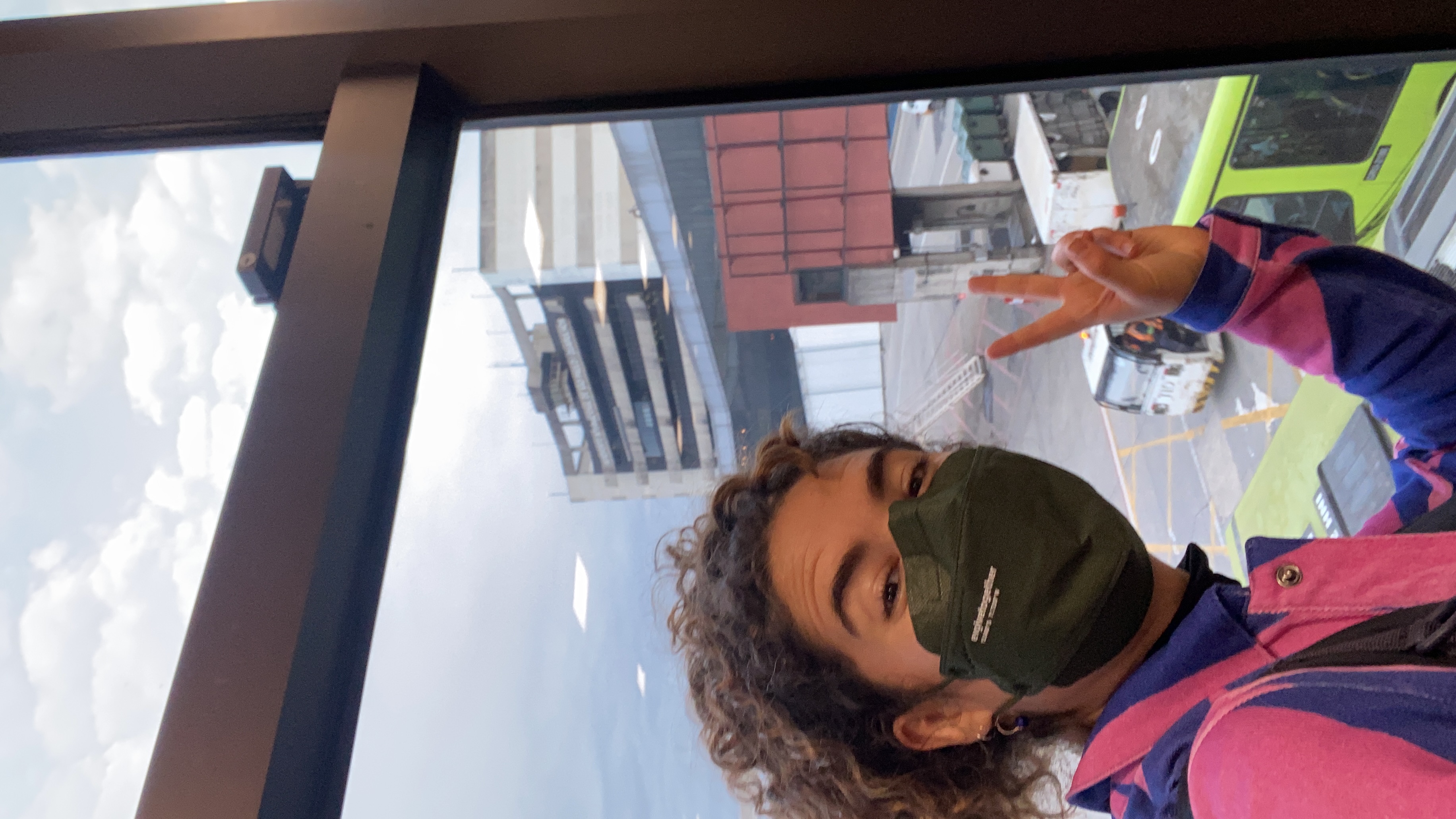On Being Alone in the Rain
02.20.2022
View from my window, in the rain
Average rainfall in Belo Horizonte in February is 181 mm. This year, by February 10, rainfall had already surpassed the monthly average by 10 mm. Every day since February 10th, the city has been the recipient of torrential down pours. Every morning and evening the heavens open up and massive thunderstorms crack overhead. In this city, whose steep street inclination far surpasses that of San Francisco, raging rivers race down through winding streets into sewage systems in the lower regions. And this is inside the city.
Outside this urban center, the effect of unprecedented rains had more drastic effects. Two weeks ago, a family was driving to the airport when a mudslide fell on their car and killed everyone. Last week, a mudslide killed over 100 people in the town of Petrópolis in Rio de Janeiro. Dams break and water floods into unprepared towns. A researcher at the architecture school told me that mining companies choose not to follow maintenance regulations for the dams because it is more expensive to comply than to repair after damage.
The rains have had an unusual effect on me. In Chicago, I am deeply affected by weather, feeling major mood swings with the lack of sun and grey cold. But here, I haven’t minded the rain that keeps my indoors. As I’ve been adjusting to a place very different from my home, the rain provide a natural break in my slightly frantic efforts to be out and integrating. During my hours-long jaunts around the city, when rain starts, I rush home and find some peace in my small apartment. I also can feel their intensity, and while I know I’m safe in the city, the larger uncertain relationship between their surges, human greed, and climate change makes me uneasy.
Also, more recently, I’ve noticed that the isolation that the rain brings has started to add another dimension to my integration here. Raining or not, young people pour out into the streets, dense with bars. I can hear them partying way into the night. I’m not above FOMO, and have started to feel bouts of self-doubt wondering what is wrong with me since I’m not with my fellow youths on the streets.

The source of my FOMO. lol.
Belo Horizonte is a classic Midwestern city in the inland state of Minas Gerias, a gigantic city (3 million people), but relatively insular.
↪️ This means that there is a deep history, and every region within the state has a centuries-long culture, with distinct cuisines and language.
↪️ This also means that I haven’t heard or spoken to a single American in the two weeks since I’ve been here. I’ve only talked to one non-Brazilian, a visiting professor from Poland via the UK who is working with my research advisor for two weeks.
↪️ This means that being present may be easier without the usual distractions of American relationships to keep part of my mind back home.
↪️ This also means that I have to be patient for authentic relationships to develop with Mineiros. Without the crutch of hanging out with other foreigners, I am forced to focus my social energy on connecting with people here. And people are from here. Like their parents, grandparents, great-grandparents were all Mineiros.
Back home in Chicago, I heard similar reflections from friends who moved to Chicago from the East or West Coast. “People are from Chicago”. If history is deep in Chicago, it’s subterranean in Belo Horizonte and I am NOT part of it.
This morning, watching the rain cascade down my 11th-story windows, I listened to an interview with Stephen Batchelor on Krista Tippet’s On Being podcast. Titled “Finding Ease in Aloneness”, Batchelor helped me frame my aloneness in Minas Gerais as a symbiotic relationship between solitude and interaction. He said, “Solitude is the practice of creating an inward autonomy within ourselves, an inward freedom from the power of overwhelming thoughts and emotions.”
Here, I face my own aloneness. The initial bouts of anxiety that greet me when I feel profoundly different, absent of community and family, run deep and can trail me for hours.
However, Batchelor’s reframing has helped me feel compassion when I have to face myself in a way I rarely did in Chicago. In my hours of aloneness, I’ve found creativity. Initially the quietness in my life is met with chaos in my head. But, when I really sit with the emptiness, I’ve found more creativity and ideas about how I want to represent my ideas in this project. Batchelor said,
“Emptiness is only meaningful as an emptiness of something. It’s a relative term. It’s not an absolute term. You are empty of attachment, let’s say, or empty of a particular opinion. In solitude, we empty our minds of our greed and our hatred and our attachment; we don’t empty our minds of generosity and love and wisdom.”
I’m curious what you are emptying yourself of. When the next snowstorm, downpour, or pandemic keeps you at home, pay attention to the anger, attachments, or resentment you hold through the noise of everyday life. Maybe solitude will help you see more clearly, if you let it.
--
In conclusion, please enjoy this song on aloneness from the fave Jamila Woods.
“I’m not lonely, I’m alone.
And I’m holy on my own.
Ye, the bad days may come
The lover may leave
The winter may not.
Hey, the map of your palms
The temple you be
You’re all that you got.”

↩️ Return to Blog